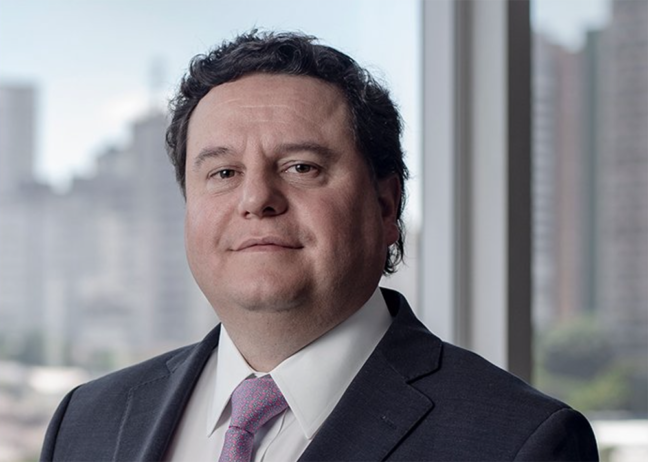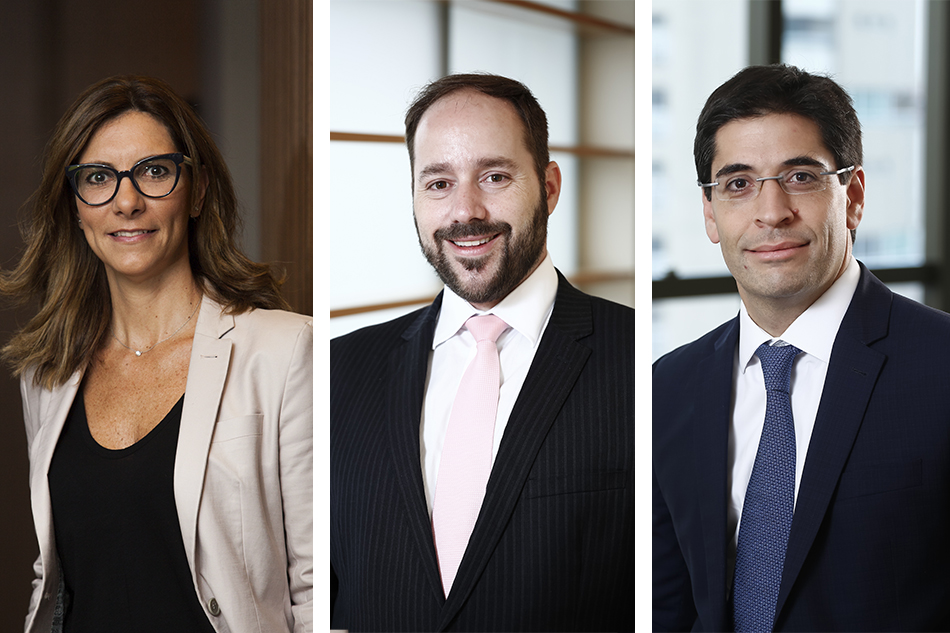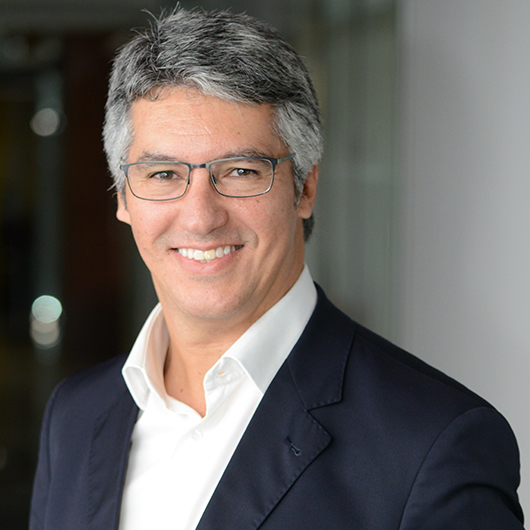Content available in English and Portuguese (scroll down)
TTR DealMaker Q&A with Demarest Advogados Partner José Setti Diaz
José Setti Diaz – Demarest Advogados

Partner of the Demarest’s Mergers and Acquisitions and International and Customs Trade areas, José Setti Diaz holds a master’s degree in Law from USP’s Faculty of Law. Among his main clients are the Harvard University fund, the Private Equity fund Vinci Partners and important domestic and multinational companies operating in the agribusiness, auto parts, forestry, paper and pulp, chemical and retail sectors. José Diaz is also the Chief Financial Officer of CESA, a member of the International Chamber of Commerce (ICC), a member of the Board of Directors of Britcham and a member of the panel of Brazilian panelists for the WTO.
TTR: In 4Q20, M&A volume in Brazil returned to levels not seen since before the restrictions imposed in March 2020 but deal volume has decreased again in the first two months of 2021. What’s your outlook for the M&A market in 2021 given these swings?
J.S.D.: 2021 looks very promising for the M&A market, still drawing heavily on consolidations and spin-offs in sectors affected by the pandemic and the rapid rise of technology companies and other sectors that are at an advantage due to the new work format. The first two months of 2021 were marked by the advancement of the second wave of COVID-19 in Brazil which, together with hiccups in the global political and economic environment, were responsible for the downward trend, but certainly this behavior should not be expected to remain as such – particularly in light of the equities market.
TTR: Foreign acquisitions of technology and Internet companies in Brazil have increased 240% in 2021. What will be the main drivers of consolidation in these segments over the course of the year?
J.S.D.: We expect that the most susceptible markets are in line with global trends, including fintechs, edtechs, collaboration platforms, healthtechs, robotic delivery and 5G-relate (smart cities, etc.).
TTR: What does the dissemination of fintech platforms imply for access to the capital market in Brazil in the short and medium term?
J.S.D.: The fintech sector in Brazil is booming, with exponential growth in the number of users resulting in pushes for the implementation of new policies by regulators, such as open banking. This outlook is borne out by the fact that fintech business models have been consistently incorporated by large financial institutions, with large banks investing in digitization to become more competitive.
The increase and facilitation of access generated by fintechs, added to the prospect of maintaining low interest rates for the economy, has drawn a wide variety of individuals to the stock exchange in Brazil and this movement can be seen in a macro scope. In the short and medium term, we can expect that this trend will continue and that the demonstration of stability by many of these platforms will bring more resources to the variable income profile.
TTR: What would be another two sectors that could offer the greatest opportunities in Brazil for international investors in 2021 and why?
J.S.D.: Health, agribusiness, infrastructure and logistics will be the sectors that should project the best level of opportunities in Brazil for 2021. Consultancies and specialized companies are already predicting that it will be in these sectors where the greatest number of job openings will occur in 2021.
The pandemic presented urgent needs in these 3 areas mentioned. Business professionals and entrepreneurs needed swiftly to enter the digital transformation with an urgent adaptation to the new work system and heavy investments in logistics and customer relations. Against this backdrop, 2021 will be a year of many opportunities for mergers and acquisitions of companies in Brazil, both for domestic and foreign companies in these sectors.
One of the reasons for such a forecast can be the favorable interest rate; the increase in investments on the Stock Exchange is stimulating the process of going public (IPOs), providing greater ease of funding and liquidity for the purchase of companies, in order to increase the competitive advantage of the business and eliminate, in some cases, competitors. Another reason for this is the current exchange rate, added to the low prices of Brazilian companies that seek to survive the crisis – making the acquisition opportunities of these targets even more attractive and cheap for foreign investment.
TTR: What will be the main challenges for Demarest Advogados in its M&A advisory work in Brazil in 2021?
J.S.D.: 2020 was a year full of challenges and learning in M&A operations as a result of the Covid-19 pandemic. The ultimate goal of companies was to survive. During the pandemic, several M&A operations remained suspended, resuming gradually from the second half of the year, both as a solution for some companies to maintain their operations, as well as for other well capitalized companies to take advantage of the acquisition opportunities and low prices, expanding their lines of business and increasing their market shares.
The learning curves in M&A projects at the firm during this pandemic have enabled us to overcome many challenges and find innovative solutions, even incorporating some as part of our “new normal”. An example of this is remote closing without any physical presence in M&A operations.
Thinking to 2021 and continuing to envisage a Selic rate at the level of 2% per year, such scenario will allow many companies to obtain good financing conditions, either due to the favorable interest rate or due to the ease in raising funds and liquidity that the market is offering. In this context, it is our understanding at Demarest that the challenges will be associated mainly with large-scale operations resulting from privatizations, from the consolidation of the market in companies that are already listed on the stock exchange and have a high level of governance, in addition to the great legal, tax and regulatory challenges that our market already faces. To name a few: (i) expectations of political reforms favorable to the business environment, (ii) democratic consolidation, among others.
Portuguese version
José Setti Diaz – Demarest Advogados
Sócio das áreas de Fusões e Aquisições e Comércio Internacional e Aduaneiro do Demarest, José Setti Diaz é mestre em Direito pela Faculdade de Direito da USP. Dentre seus principais clientes estão o fundo da Universidade de Harvard, o fundo de Private Equity Vinci Partners e importantes empresas nacionais e multinacionais com atuação nos setores de agronegócios, autopeças, florestal, papel e celulose, químico e varejo. José Diaz também é Diretor Financeiro Administrativo do CESA, membro do International Chamber of Commerce – Commission on Trade and Investment Policy (ICC), membro do Conselho de Administração da Britcham e faz parte da lista de painelistas brasileiros para a OMC.
TTR: No 4T20, o número de operações de M&A no Brasil ultrapassou os valores trimestrais anteriores às restrições impostas em março de 2020, mas a tendência diminuiu nos primeiros dois meses de 2021. Que perspectiva poderíamos ter para 2021 com isso comportamento?
J.S.D.: O ano de 2021 parece muito promissor para o mercado de M&A, ainda se valendo fortemente de consolidações e spin-offs em setores afetados pela pandemia e a rápida ascensão de empresas de tecnologia e outros setores privilegiados pelo novo formato de trabalho. Os primeiros dois meses de 2021 foram marcados pelo avanço da segunda onda de COVID19 no Brasil, o que juntamente com soluços na conjuntura política e econômica global, foram responsáveis pela tendência reduzida, mas certamente esse comportamento não deve se manter – inclusive á luz do mercado de equities.
TTR: As aquisições por compradores estrangeiros de empresas de tecnologia e Internet no Brasil aumentaram 240% em 2021. Quais serão os principais vetores de consolidação desses segmentos ao longo do ano?
J.S.D.: Esperamos que os mercados mais suscetiveis estejam em linha com tendências globais, entre eles fintechs, edtechs, collaboration platforms, healthtechs, robotic delivery and 5G related (smart cities, etc.).
TTR: O que significa a disseminação das plataformas fintech para o acesso ao mercado de ações no Brasil no curto e médio prazo?
J.S.D.: O setor de fintechs no Brasil está extremamente aquecido, com crescimento exponencial no número de usuários sendo responsável inclusive por empurrar a implementação de novas políticas pelos reguladores, como por exemplo o open banking. Essa visão é corroborada pelo fato de modelos de negócios das fintechs virem sido incorporados de forma contumaz por instituições financeiras de grande porte, com bancos grandes investindo na digitalização para se tornarem mais competitivos.
O incremento e facilitação de acesso gerado pelas fintechs, somada a perspectiva de manutenção de juros reduzidos para economia, trouxe diversos indivíduos pessoas físicas para a bolsa de valores no Brasil e esse movimento pode ser percebido de forma macro. No curto e médio prazo, podemos esperar que essa tendência permaneça e que a demonstração de estabilidade por muitas dessas plataformas traga mais recursos para o perfil de renda variável.
TTR: Quais seriam os outros dois setores que poderiam oferecer as maiores oportunidades no Brasil para investidores internacionais em 2021 e por quê?
J.S.D.: Saúde, agronegócio, infraestrutura e logística serão os setores que devem projetar o melhor nível de oportunidades no Brasil para 2021. As empresas de consultoria e especializadas já estão prevendo que serão nestes setores onde serão abertas a maior quantidade de vagas de trabalho em 2021.
A pandemia apresentou necessidades urgentes em estas 3 áreas mencionadas. Empresários e empreendedores precisaram ingressar rapidamente na transformação digital com uma adaptação urgente no novo sistema de trabalho e com investimentos pesados em logística e relacionamento com o cliente. Nesse contexto, 2021 será um ano de muitas oportunidades para fusões e aquisições de empresas no Brasil, tanto para as nacionais quanto para as estrangeiras neste setores.
Uma das razões, pode ser a taxa de juros favorável, o aumento de investimentos na Bolsa de Valores está estimulando o processo de abertura de capital (IPOs), proporcionando maior facilidade de captação e liquidez para compra de empresas, a fim de aumentar a vantagem competitiva de negócio e eliminar, em alguns casos, concorrentes. Outra razão disso, a atual taxa de câmbio, somada aos preços baixos de empresas brasileiras que buscam por sobrevivência ao longo da crise, torna as oportunidades de aquisição desses alvos ainda mais atraentes e baratas para o investimento estrangeiro.
TTR: Quais serão os principais desafios da operação de M&A no Brasil durante 2021 para o Demarest Advogados?
J.S.D.: O ano de 2020 foi um ano cheio de desafios e aprendizados nas operações de M&A por causa da pandemia da covid-19. O objetivo maior das empresas era sobreviver. Durante a Pandemia, várias operações de M&A permaneceram suspensas, sendo retomadas aos poucos a partir do segundo semestre, tanto como solução para algumas empresas conseguirem manter suas operações, quanto para outras, bem capitalizadas, aproveitarem as oportunidades de aquisição e preços baixos, expandindo suas linhas de negócios e aumentando suas fatias de mercado.
Os aprendizados em projetos de M&A no escritório durante esta pandemia nos permitiu superar muitos desafios e encontrar soluções inovadoras, mesmo incorporando alguns como parte do nosso “novo normal”. Exemplo disso poderíamos mencionar closing a distância sem presença física nenhuma em operações de M&A.
Pensando em 2021 e continuando a vislumbrar uma taxa Selic no patamar de 2% ao ano, permitirá que muitas empresas consigam boas condições de financiamento, seja pela taxa de juros favorável ou pela facilidade na captação e liquidez que o mercado está oferecendo. Nesse contexto, entendemos no Demarest que os desafios estarão associados principalmente com operações de grande porte decorrentes de privatizações, da consolidação do mercado em empresas que já cotizam em bolsa e possuem um alto grão de governança além dos grandes desafios legais, tributários e regulatórios que o nosso mercado já presenta, para citar alguns: (i) expectativa de reformas políticas favoráveis ao ambiente de negócios, (ii) democracia consolidada, entre outras.








